
Alexander Fahima is a German-Iranian artist and theorist working in the field of audio-visual narration between opera, Cinéma vérité and installation.
He studied theatre, film and media science, psychoanalysis and law in Frankfurt am Main and worked as a camera operator and editor of music videos. After graduating from music theater directing at the Hamburg University for Music and Theater in 2009 he staged operas such as Otello by Giuseppe Verdi, Alessandro by George Frideric Handel and the world première of The Temptation of Saint Anthony by Ulrich Kreppein, which explored the artist’s interest in the theater of Vsevolod Meyerhold, Edward Gordon Craig and Erwin Piscator. For his productions he collaborated with the State Theaters of Weimar, Karlsruhe and Oldenburg, the Opera Heidelberg, the International Easter Festival in Baden-Baden, the Kammeroper Schloss Rheinsberg and the Schauspielhaus Hamburg.
During his scholarship at the Deutsche Bank Academy Music Theater Today, a funding program for international next-generation music theater makers, he started creating a series of audio-visual installations, entitled ‘Static Revues’, to name a few; Songs, Drones and Refrains of Death by George Crumb, Satyricon by Bruno Maderna and Arnold Schoenberg’s Pierrot Lunaire for Galerie Ebensperger Berlin, as well as L'Animal que donc je suis with music by the American band Fantômas, honored with the Karl H. Ditze Prize for outstanding performances, and a scenic realization of Frederic Rzewski’s oratory The Triumph of Death (based on Peter Weiss’ play The Investigation), for which he received the renowned Götz Friedrich Award 2016 for ‘Best Direction in Experimental Music Theater’.
As part of his production of Paul Hindemith’s Lehrstück (The Learning Play) and Kurt Weill’s Mahagonny-Songspiel with the Berlin Philharmonic, his book »statische revuen« was published by Textem Verlag. Furthermore, his essays on the music-theatrical score as hypertext; or the influence of cinematography and video game culture on stage directing have been published in several German music journals. Since 2010 he has also been giving lectures regularly on his Dissociative Method of Music Theater Directing, in particular in Hamburg at the University of Fine Arts and the University of Applied Sciences, at C.O.D.E. University Berlin and at University of Applied Arts Vienna.
His recent works include a collaboration with German performance collective Rimini Protokoll for their production of John Cage’s Europeras 1&2 at Oper Wuppertal, the co-direction for the first staging of Charles Gounod’s Faust at the Salzburg Festival and the artistic direction of the concert installations In Between and In Between 2: Cabin in the Woods for Ensemble Intercontemporain at the Philharmonie de Paris. In spring 2021, at the invitation of Volksbühne Berlin, he realized his opéra concrète On Reading #foucault’s #lusagedesplaisirs feat. a very slow #bohemianrhapsodyremix [aka The Rules of Attraction] with the duration of 15 hours, conceived to be viewed online on Twitch. The production combined a queer Berlin house party with live directed site specific performance alongside the music and the entirely subtitled libretto of Der Ring des Nibelungen by Richard Wagner.
With Alessandro Baticci’s new composition ICARO, Alexander Fahima was invited to direct his 10th world première of a contemporary music theater piece. The opera about high-altitude euphoria and the lust for unsecured skyscraper climbing was commissioned by Stuttgart State Opera and premiered in November 2023.
In 2026/27, a new series of works entitled Meine Werke, Deine Werke will be released, presenting operas de-composed, designed and conducted by fourth-graders. First, something will happen to Benjamin Britten’s vaudeville The Golden Vanity at London Performance Studios.
The picture was taken by Gerrit Frohne-Brinkmann









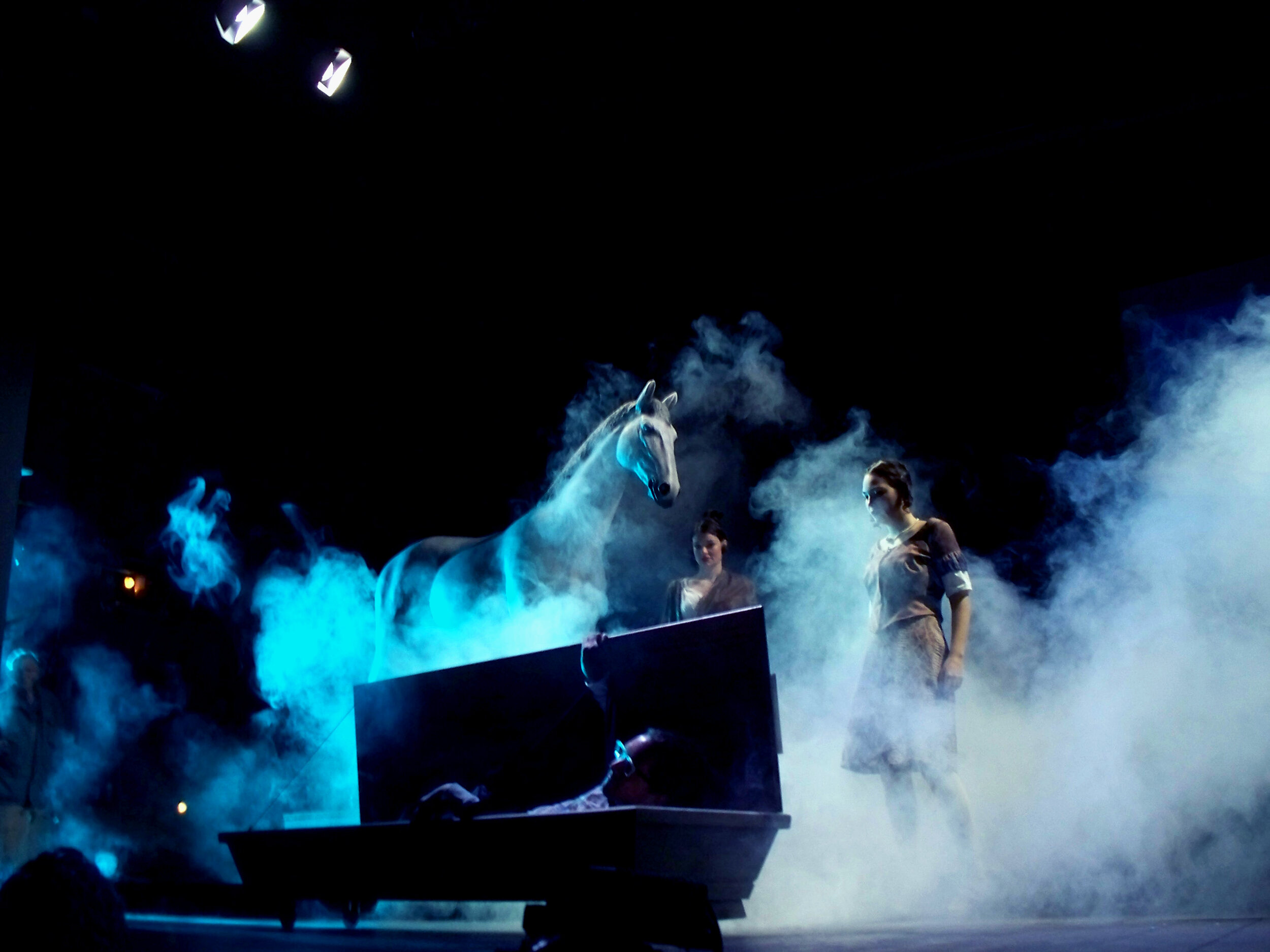







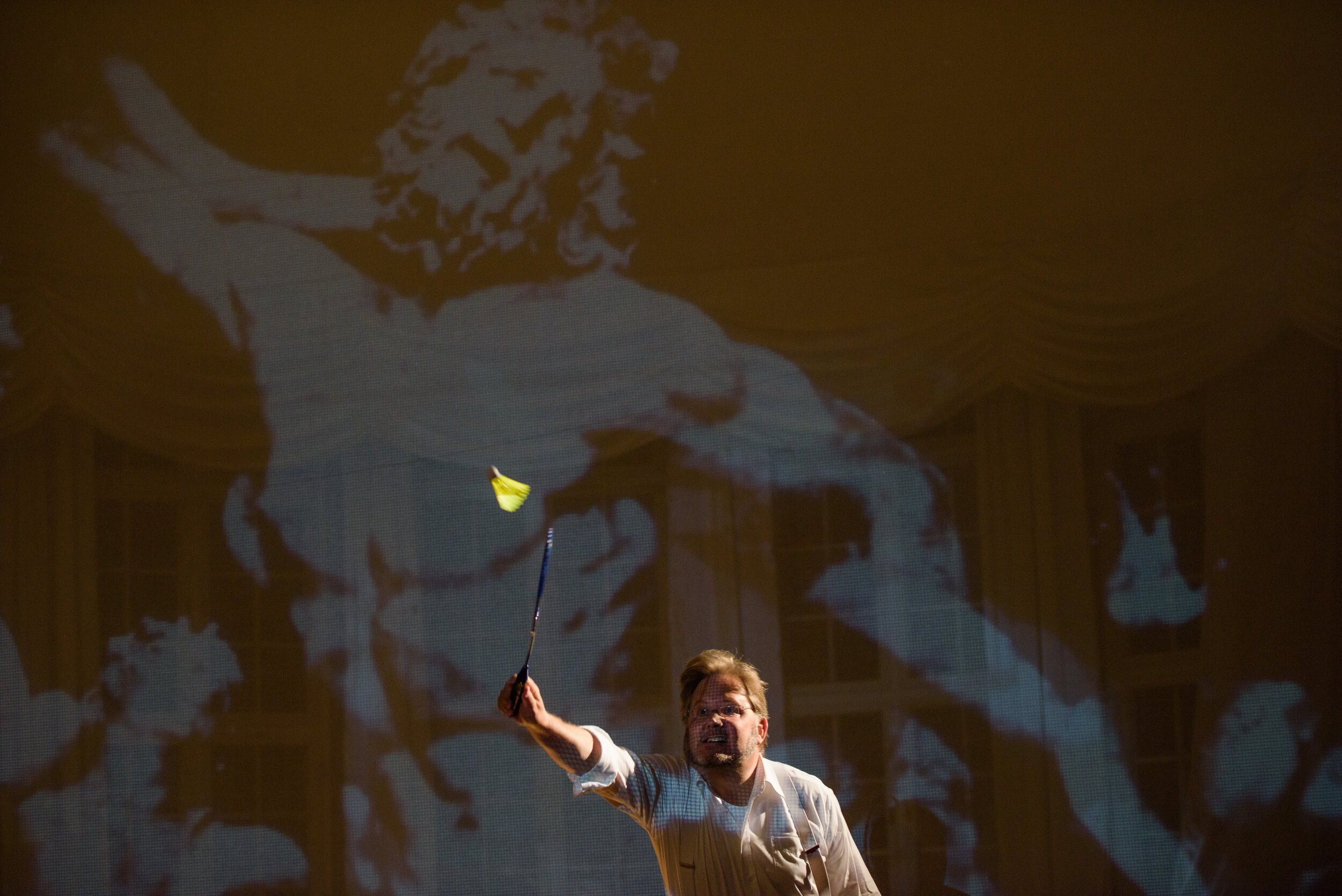

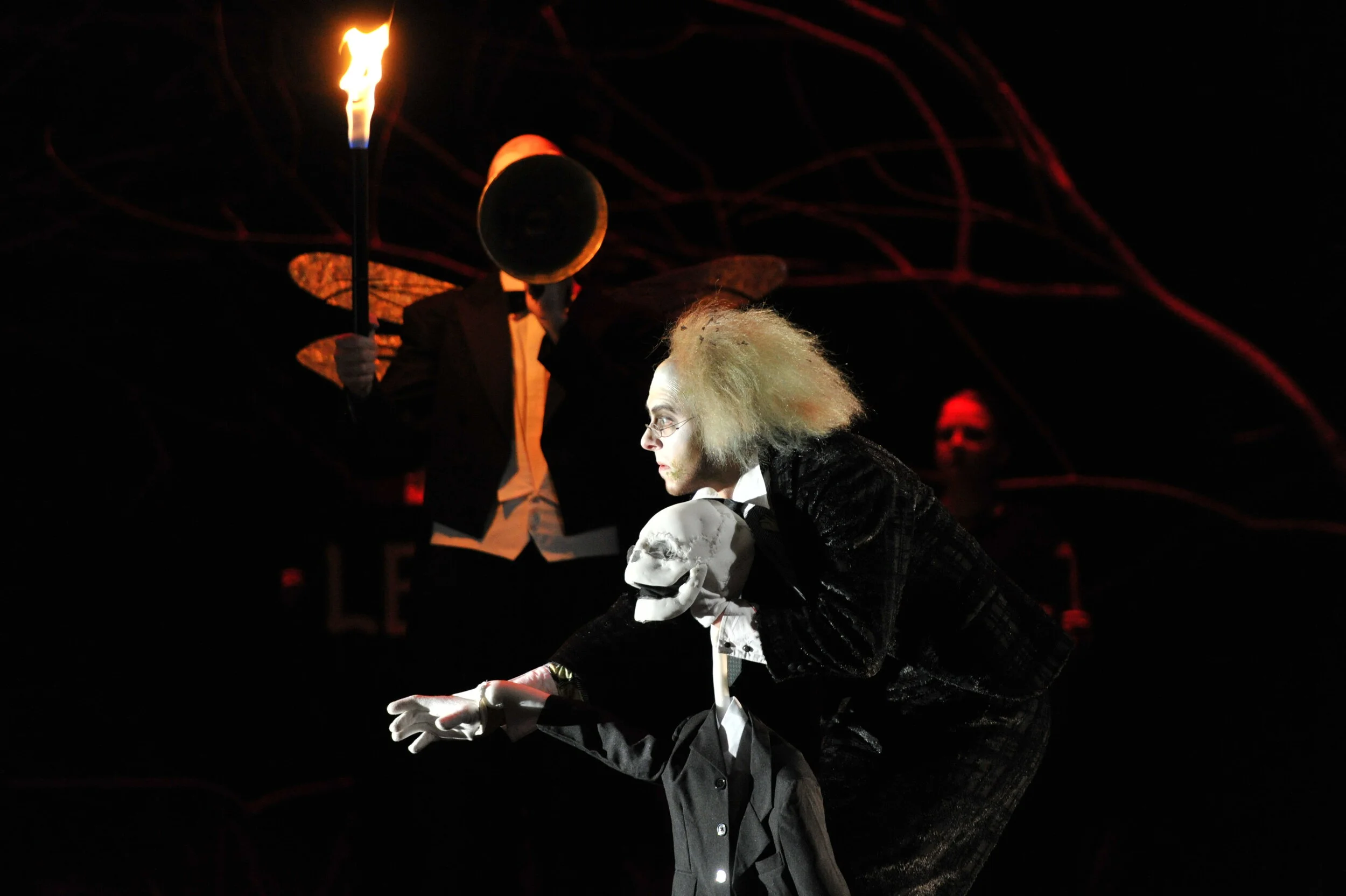

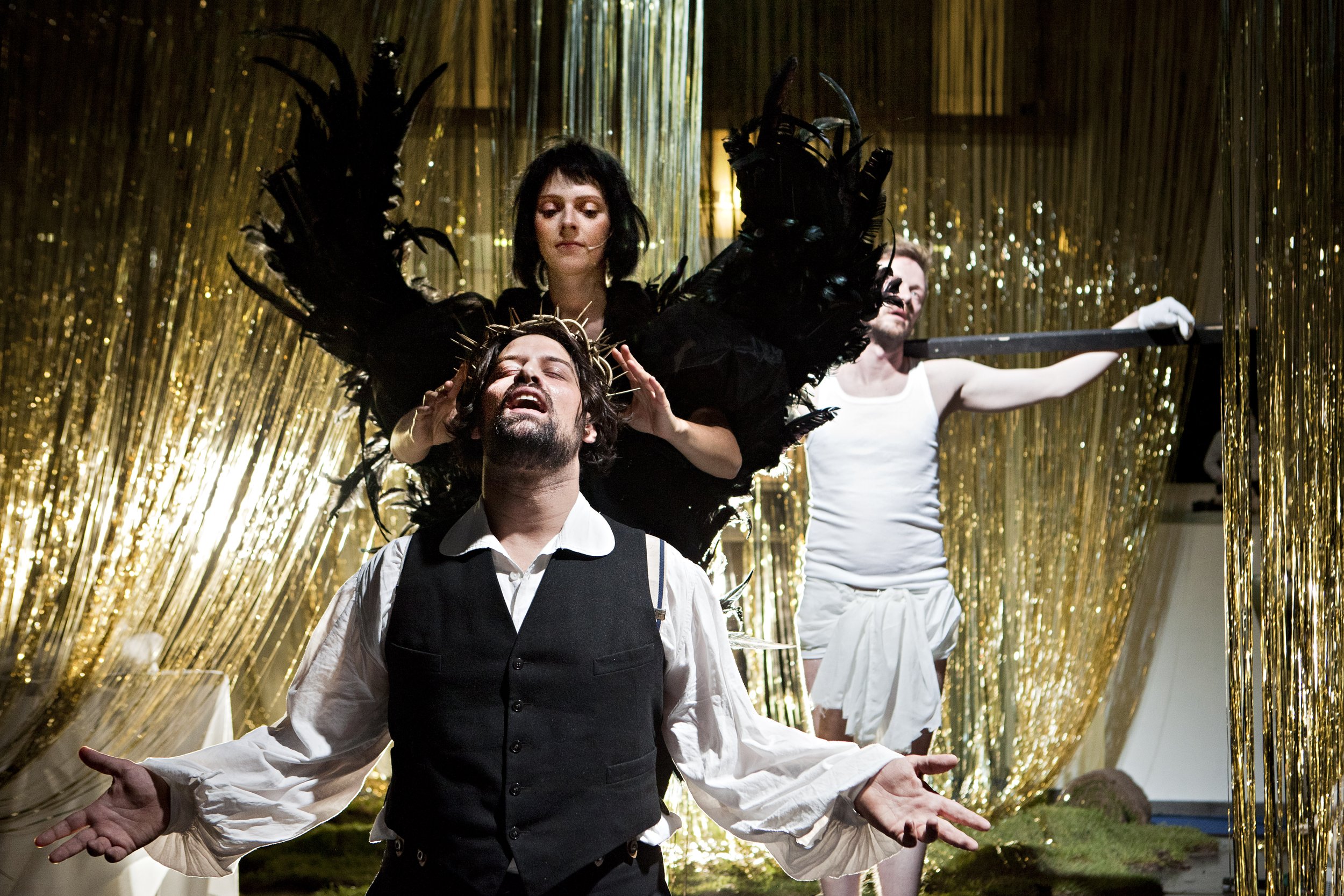



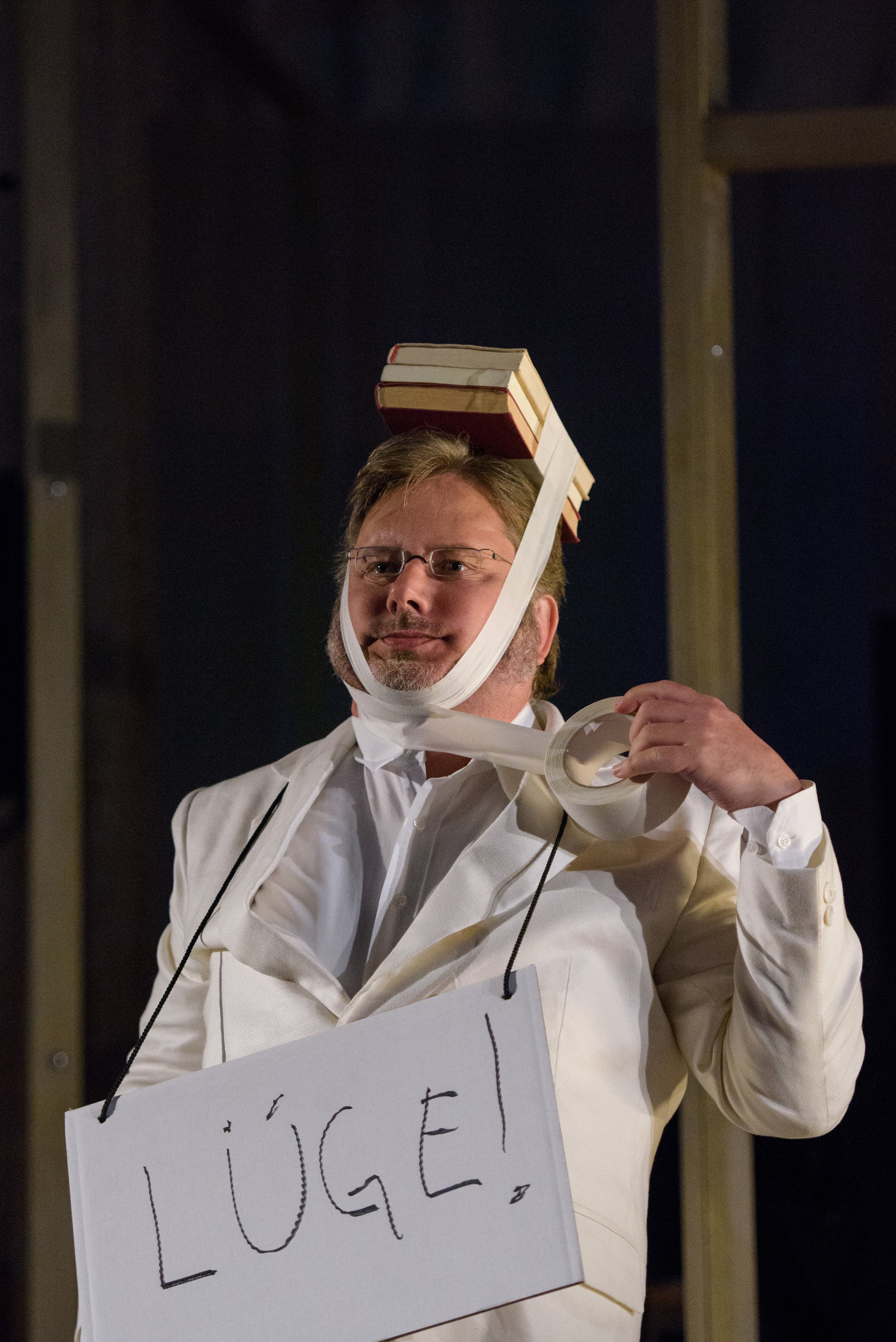
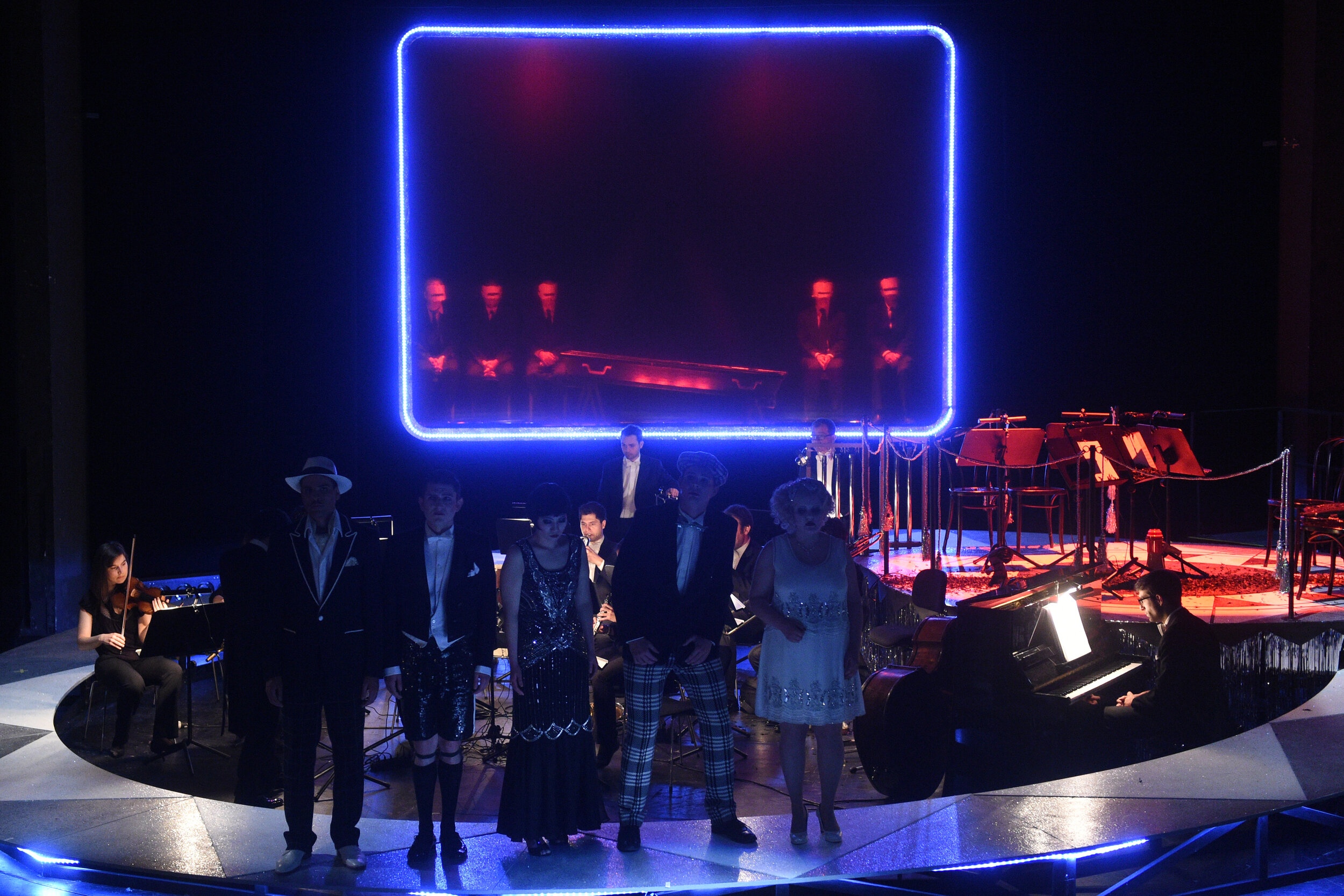
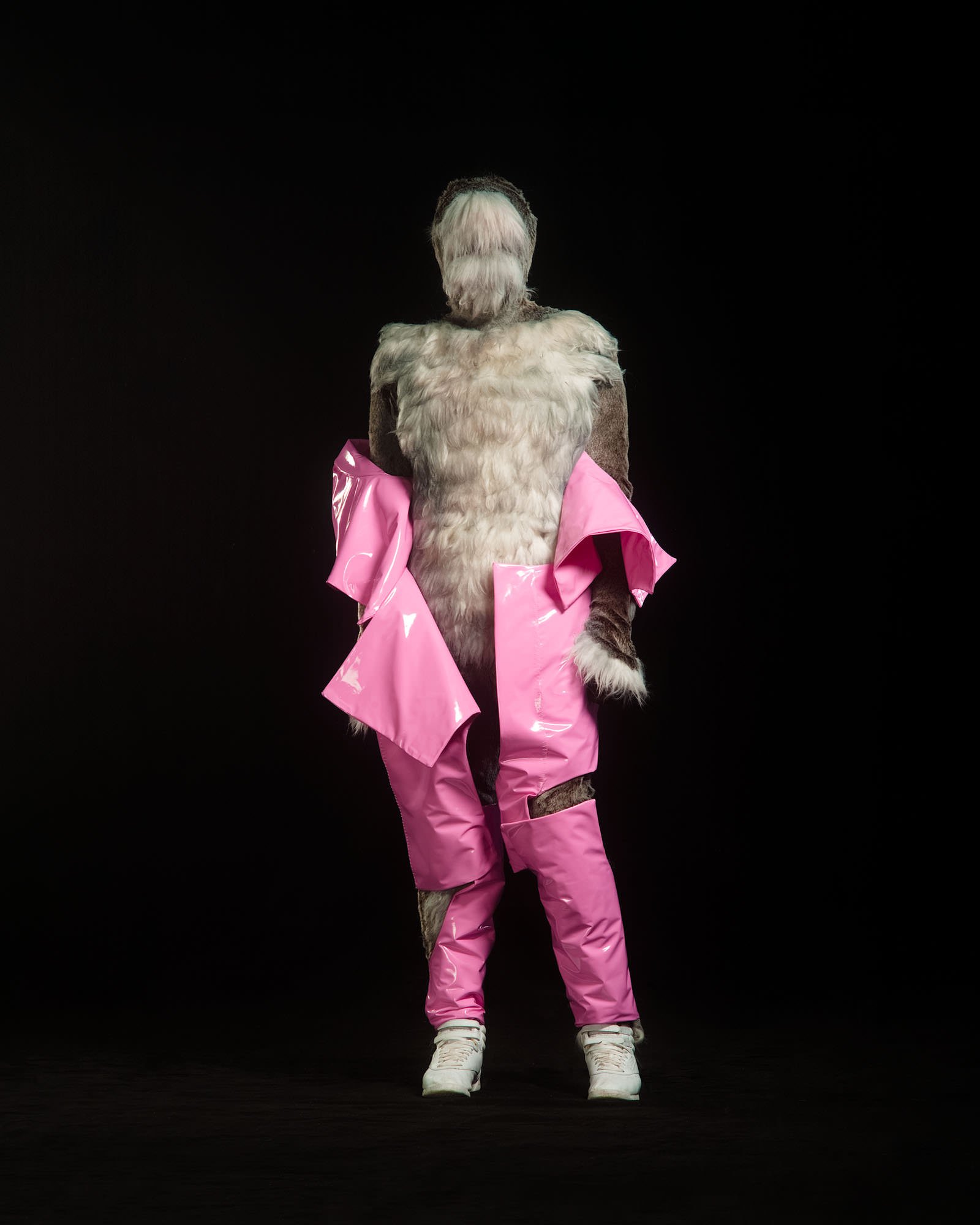





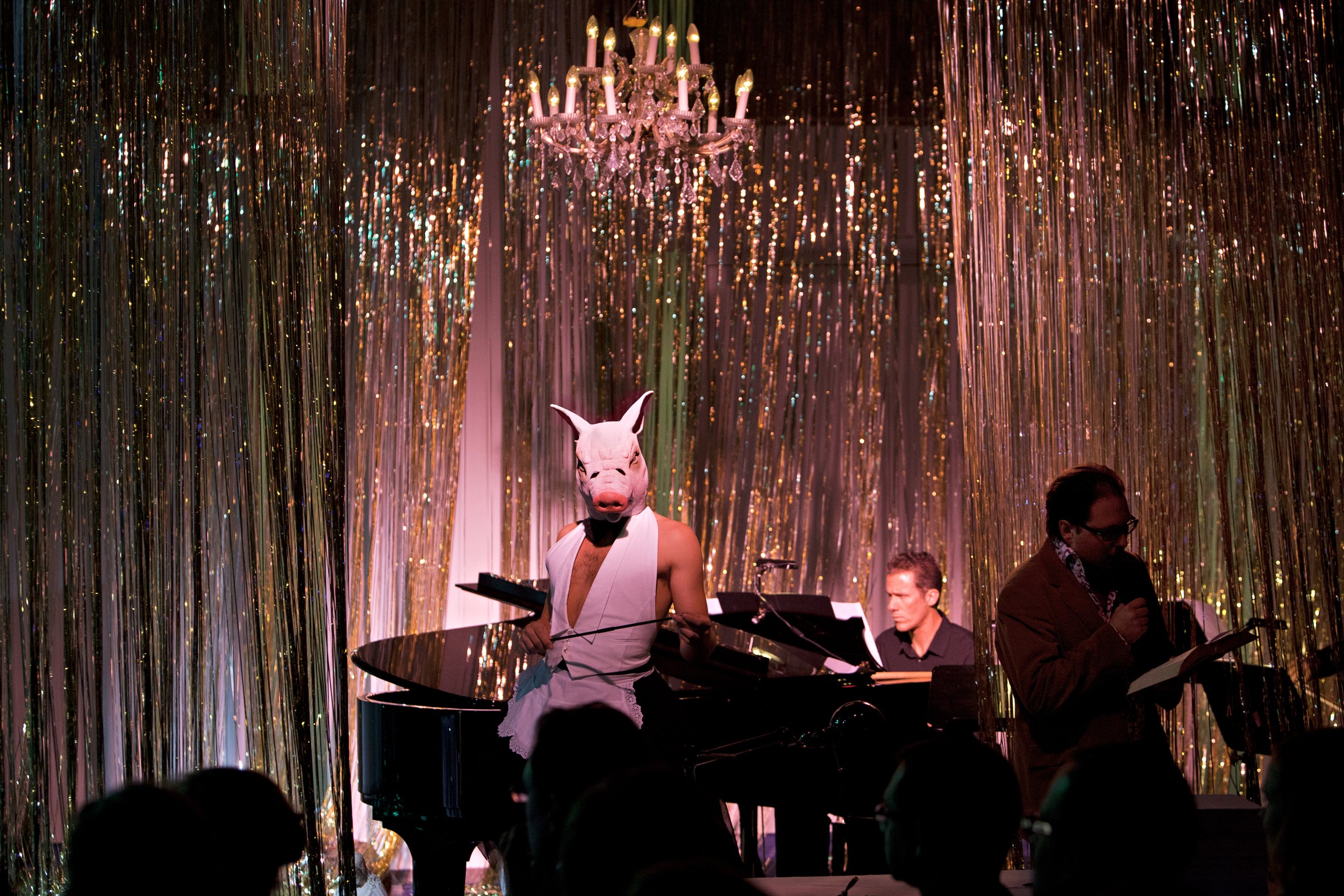

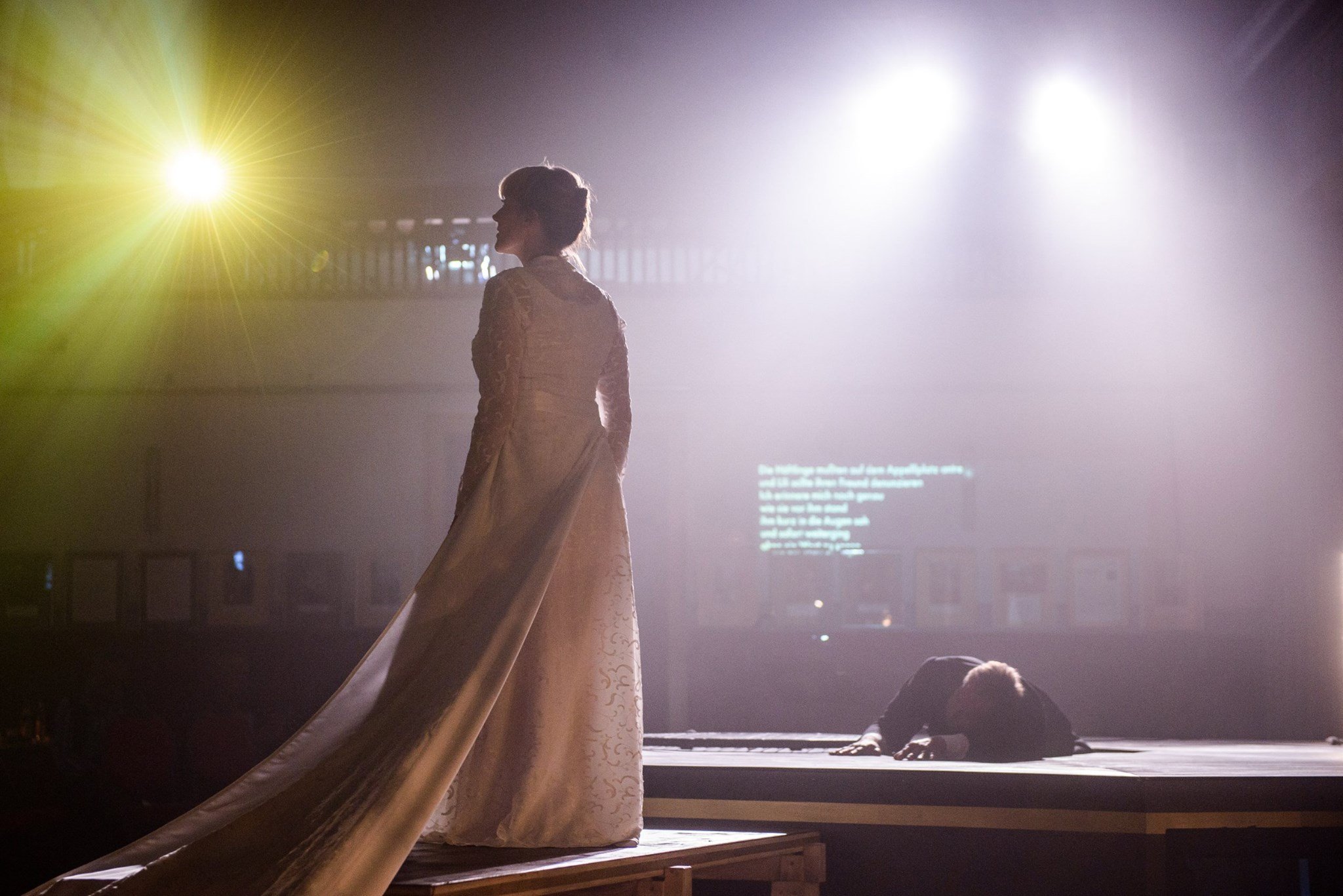


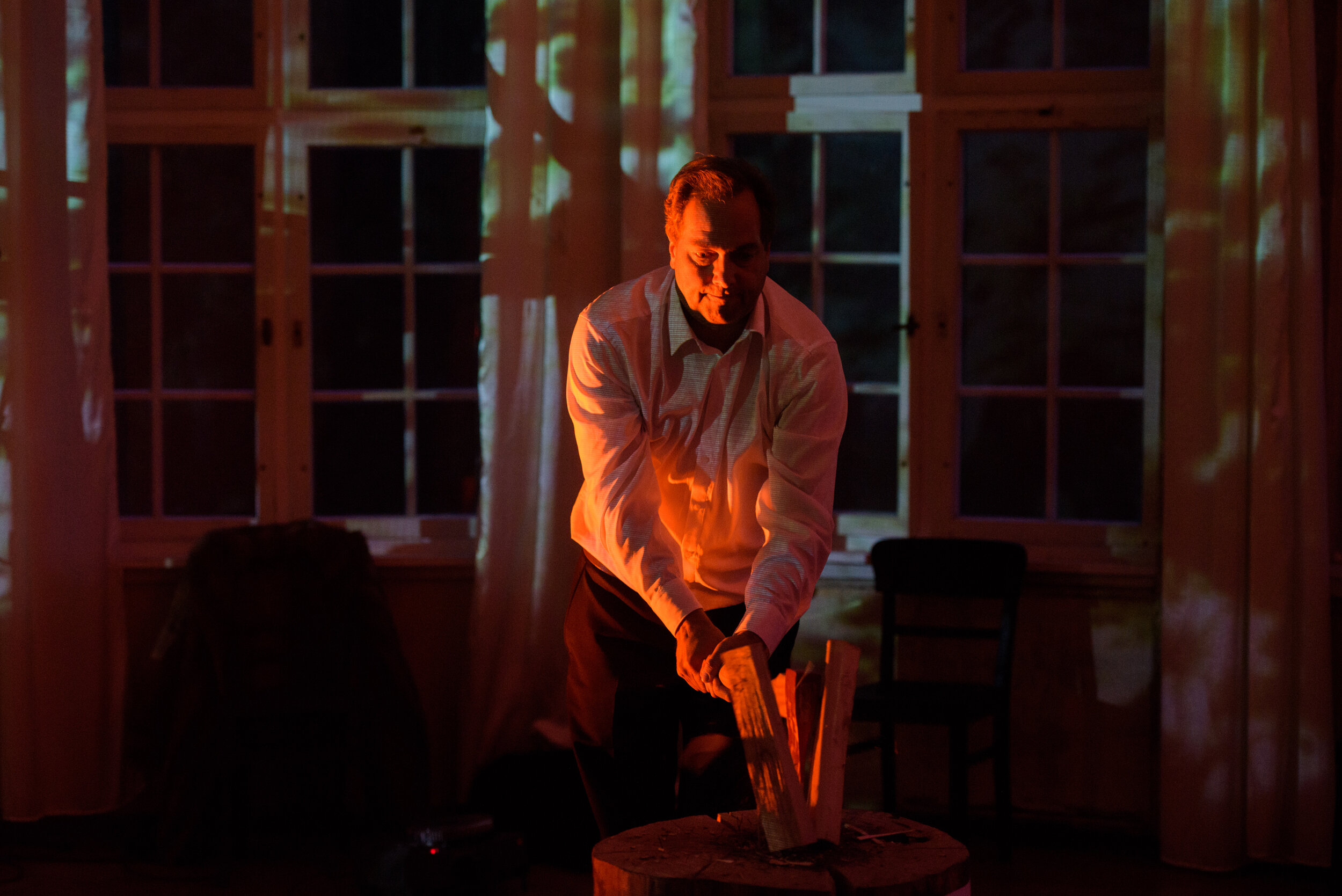









-
In Alexander Fahima's production there are no empathy vouchers, with which one can cheaply consume terror from the victim’s perspective for two hours. The provocative lightness of his direction may well be necessary in order to unmask such rituals, in which one makes one's heart heavy without risk, as a cheap relief strategy.
Jan Brachmann, FAZ
-
You really need to relax and are only partially fit to drive when leaving the Oldenburg State Theater after the world premiere of Ulrich Kreppein's and Alexander Fahima’s musical theater.
Detlef Brandenburg, die deutsche bühne
-
Complex world theater with high standards.
Bernhard Doppler, Deutschlandradio Kultur
-
Director Alexander Fahima cleverly intertwines the two pieces. His staging - in its technical, fast-paced mastery, its adept handling of the usances of epic theater, ballet méchanique and art movements such as Dadaism - becomes a lesson in the art of directing.
Alexander Dick, Badische Zeitung
-
One has to thank the young director Alexander Fahima for allowing, especially in the second act, a calm dream-like logic to prevail on a practically empty stage such that the arias, each more beautiful and original than the last, have room to breathe.
Karl Harb, Salzburger Nachrichten
-
In three enthralling hours, the director succeeds in enlarging as through a magnifying glass the individual's drama at the right moment, producing an evening of opera whose accuracy and inventiveness would be a surprise even in larger opera houses.
Johannes Breckner, Darmstädter Echo
-
-
Fahima's production leaves a wonderfully indescribable feeling. Very gently and unobtrusively, the young director created an environment of abstract art with perfect balance of expressive gestures and symbolic details. It is thanks to the sensitive musical and scenic implementation of this wonderful music that the bulky, and rather questionable 'Dramma per musica' is easy to digest.
Isabell Steppeler, Badische Neueste Nachrichten
-
The stage direction spices up the round dance of arias with videos that feature trash monsters à la Gozilla and King Kong, without ever spoiling the elegiac mood or becoming hectic.
Dirk Schümer, FAZ am Sonntag
-
Fahima finds grand, captivating solutions for intimate as well as tragic inner processes, his Otello is a cheerful revue and a subtle psychogram at the same time.
Matthias Roth, Rhein-Neckar-Zeitung
-
Director Alexander Fahima makes a spirited work of art out of formerly scandalous pieces. The production thrives on its powerful images and musical presentation as the Berlin Philharmonic elegantly and incredibly precisely, and yet ironically obliquely moves through the music of Weill and Hindemith. No scandal at the end - just joyful applause.
Christine Gehringer, Pamina Klassik
-
The director creates a delicate watercolor, that is modern but not modernistic, avoiding garish colors and rather surprisingly, but wholeheartedly entrusting himself to the great inventor of melodies, Georg Frideric Handel.
Joachim Lange, die deutsche bühne
-
A densely packed and highly exciting confrontation with an urban mythology of contemporary culture, free of any moral advices.
Harry Schmidt, Ludwigsburger Kreiszeitung
-
Fahima's two-parter is above all a pantomime-musical spectacle. The director repeatedly underscores Brecht's maxims in impressive images; thus making an old lesson seem quite up-to-date.
Christiane Lenhardt, Badisches Tagblatt
-
Concerts like this one are rare, too rare and too precious - especially because the audience finds themselves immersed in an absolutely extraordinary setting, the necessary curation and mise en espace of which has been left to the care of Alexander Fahima. So much talent, so much energy, so much investment for the simple pleasure of offering a 'sonic garden'.
Julius Lay, www.bachtrack.com